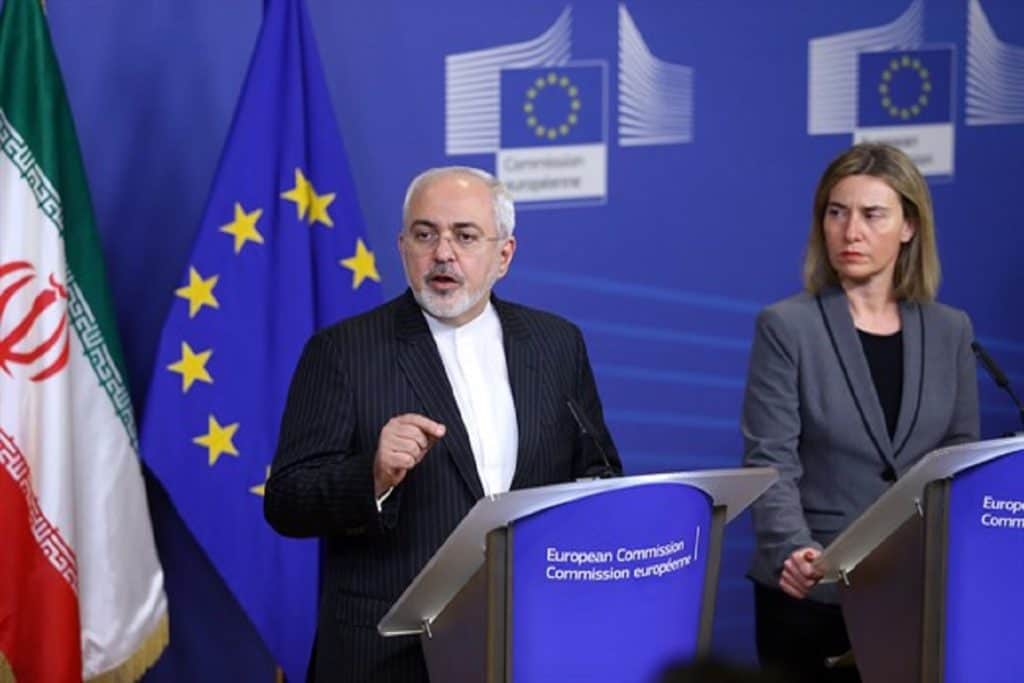By Denis Korkodinov
The policy of mutual accusations caused by the intensification of American pressure continues between the USA and Iran. Under these conditions, Tehran was forced to draw the attention of European partners in the nuclear deal in order to resolve the crisis.
In fact, the Ayatollah regime issued an ultimatum: if Europe does not intervene, Iran will provoke a hermetic crisis. In addition, Hassan Rouhani announced Iran’s intention to start producing nuclear weapons. This puts Europe in a situation of difficult choice between Washington and Tehran.
European leaders, who are under pressure from both the American administration and the Iranian leadership, are trying not to intervene in the conflict. Their goal is to gain time in order to subsequently take the side of the winner. For this reason, they are trying to stall the decision-making process regarding the nuclear deal and the need to participate in a possible military campaign against Iran, because they do not want to spoil relations with either Tehran or Washington.
Moreover, Europe has provided guarantees to Iran regarding the possibility of circumventing US sanctions on the ban on the purchase of Iranian oil through the search for alternative mechanisms. In particular, we are talking about the rejection of the US dollar as a means of international payment when buying “black gold”.
The bipolar policy of European countries certainly has, as a result, irritation of the White House administration. For example, during his visit to London, US Secretary of State Mike Pompeo made it hard for the British government to state: “either we or Iran.”
Mike Pompeo’s logic is clear: he wants Tehran to have no friends in Europe. Therefore, he considers it his duty to be sufficiently demanding of his European partners, even threatening them with a deterioration in relations, if they continue to cooperate with the Ayatollah regime. At the same time, Washington understands that the best way to pacify Iran is to allow it to have as many friends as possible with the expectation that this will eventually lower world prices for Iranian oil. In addition, if Tehran has a great friendly environment, then the need to resist the United States simply will not.
Washington’s biggest mistake is a way out of a nuclear agreement. Thus, the White House made it impossible for the network to directly monitor Iran’s nuclear program. Now, it is extremely curious for European leaders to know what conclusions Washington may draw based on indirect evidence of Tehran’s preparation of nuclear weapons. However, many understand that the United States in any case will not leave Iran alone: and if, during an international investigation, it turns out that the nuclear potential of an Islamic republic does not threaten American interests, this will not change anything for the better.
Donald Trump aims not only to launch a military campaign against Iran, but also to achieve a regime change. To this end, the White House continues to shrink the field for maneuvering Europe so that the leaders of the countries recognize the priority of the American scenario of the next revolution in Tehran. The slogan “America first!” becomes the hallmark of the Iranian dimension of Washington’s foreign policy.
European leaders to circumvent the US sanctions guaranteed the use of the trade channel “Instex” to the Ayatollah regime. However, under the pressure of the United States, this channel has not been activated. This is of great concern in Tehran, which expects a special relationship from the EU. But in fact, Europe does not want Iran to feel its special status in a nuclear deal. For many Europeans, it would be better to pretend that nothing is happening. Such a policy is due to the fact that Europe is not ready to quarrel with Donald Trump over Iran, but is also not ready to completely abandon Tehran, relations with which are classified as secret.
(The opinions expressed in this article are solely those of the author and do not necessarily reflect the views of World Geostrategic Insights)
Image Credit: Iran Daily







